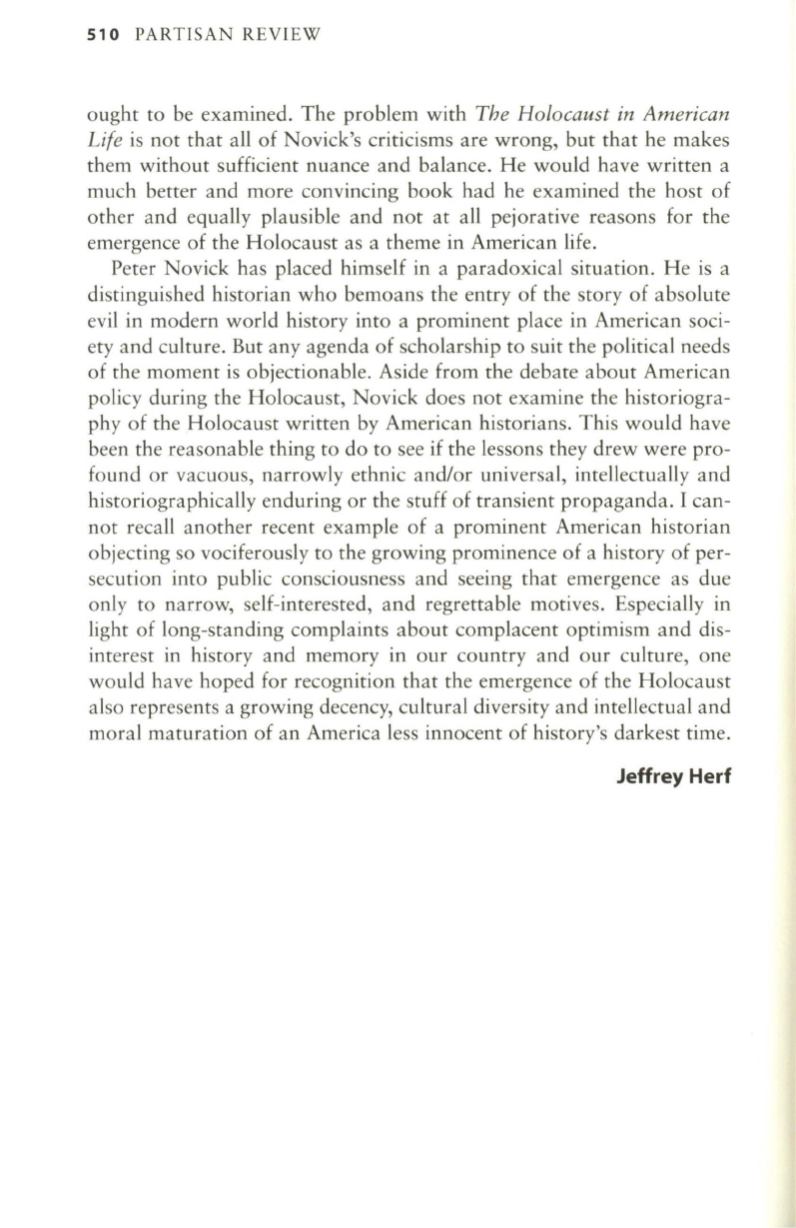
510
PARTISAN REVIEW
ought to be examined . The problem with
The Holocaust in American
Life
is not that all of Novick's criticisms are wrong, but that he makes
them without sufficient nuance and balance. He would have written a
much better and more convincing book had he examined the host of
other and equally plausible and not at all pejorative reasons for the
emergence of the Holocaust as a theme in American life.
Peter Novick has placed himself in a paradoxical situation. He is a
distinguished historian who bemoans the entry of the story of absolute
evil in modern world history into a prominent place in American soci–
ety and culture. But any agenda of scholarship to suit the political needs
of the moment is objectionable. Aside from the debate about American
policy during the Holocaust, Novick does not examine the historiogra–
phy of the Holocaust written by American historians . This would have
been the reasonable thing to do to see if the lessons they drew were pro–
found or vacuous, narrowly ethnic and/or universal, intellectually and
historiographically enduring or the stuff of transient propaganda. I can–
not recall another recent example of a prominent American historian
objecting so vociferously to the growing prominence of a history of per–
secution into public consciousness and seeing that emergence as due
only to narrow, self-interested, and regrettable motives. Especially in
light of long-standing complaints about complacent optimism and dis–
interest in history and memory in our country and our culture, one
would have hoped for recognition that the emergence of the Holocaust
also represents a growing decency, cultural diversity and intellectual and
moral maturation of an America less innocent of history's darkest time.
Jeffrey Herf


